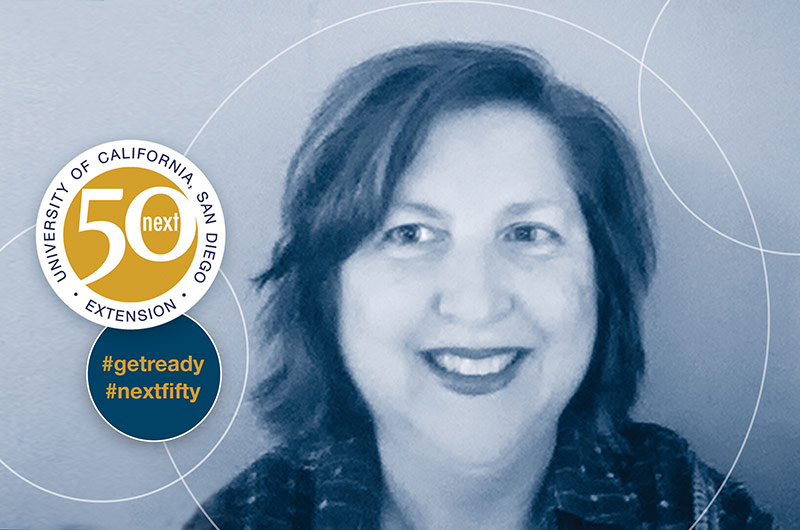26 April 2016
50 Voices of the Future: Kate M. Edwards on special needs students

In honor of UC San Diego Extension's first 50 years, 50 Voices of the Future asks thought leaders about the trends, breakthroughs and social advances they foresee over the next 50 years.
Kate M. Edwards, Ph.D., is a teacher’s teacher. At UC San Diego Extension, she trains educators how to instruct students with special needs. This is key because, as Edwards explains, the future of education is all about inclusiveness. Whereas in the past, there were separate classrooms for children in special education, the trend now is for all students to be integrated in the same class, with the same teacher.
(1) Why is the work you do important?
I've been working most recently on creating a program for UC San Diego Extension on teaching children with autism. The need for more information about children with autism is a particular concern for teachers. It's the way of the future that all children are going to be included in the same classroom; not all children are the same and they have individual needs, and teachers need to be equipped on how to accommodate a variety of different learning styles and abilities.
(2) What are the influential/exciting developments happening in your field now and why?
I think there's a recognition that all students have different abilities and that skills in accommodating and modifying curriculum for all students is important whether or not they're deemed special needs or not, like ideas such as universal design, which is to design the curriculum in a way that can include the most types of learners and the most types of abilities, rather than having to single out one child.
(3) What’s the next big thing?
I believe teacher credentials are going to be inclusive for special education practices for all teachers, whether they have that (special education) designation or not. I always tell young teachers that we are all special education teachers – whether you have it on your credentials or not – because you're going to have kids in your classroom that have special needs. They might be very subtle special needs, or they might not be diagnosed special needs, but you're going to have a kid in your classroom with special needs and you're going to have to teach to that child whether or not that's on your credentials or not.
(4) How big of an impact will your field play in shaping the future of the San Diego region and beyond?
It affects San Diego particularly because children with immigrant status who are English language learners would be more included in the classroom, and they would have more services available to them, and they would not be singled out as much. Their teacher would have to give them more attention initially because that’s how you get them caught up, and that would be implicit in the instruction. But they wouldn’t be considered a special group.
(5) Hop into your time machine…what does the future look like for this field in 50 years? How can individuals/companies get prepared for what’s next?
High school right now is not really working for a lot of students. It’s no longer structured for the real world young person, who has to work to take care of their families or their brothers and sisters, etc. I think high school is going to become a much more individualized program. It’s going to become a more online independent study situation. Education is going to be a much more individualized approach.
Explore the Education programs and classes that UC San Diego Extension offers online, including Kate's course, Teaching Special Populations.